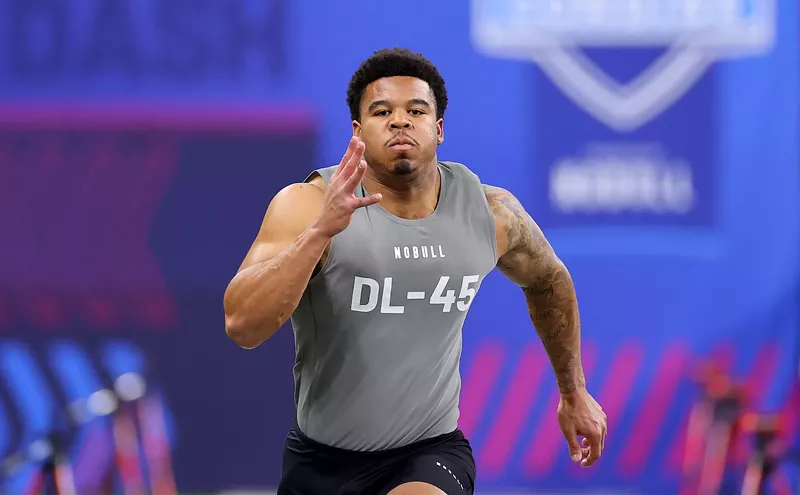"This is exactly where I want to be now," Cheeks explains. "I did South Jamaica. That's a wrap with that. I've seen a lot of good people gone, and I'm too old to be runnin' around anymore. If I was still up there, I'd be doing the same shit." His voice drops to an ominous growl: "Niggers be comin' over, don't have no trees -- just comin' over!"
Connecting the loss of friends with weed-leaching hangers-on isn't entirely a stretch here. As one of the Lost Boyz, Cheeks was hardly guarded about his days as a petty drug dealer or his participation in much of the nonsense that flows from that milieu. But as the title of the Lost Boyz 1996 debut album, Legal Drug Money, alludes, rapping gave him a new focus.
"Music is the most powerful drug in the world," he declared at the time. "Music will make you high." It can also make you rich, as the Lost Boyz began to discover when thumping hits such as "Get Up" helped propel Legal Drug Money and its 1997 followup, Love, Peace & Nappiness, to gold status.
Despite their growing celebrity, you could still find Cheeks and fellow Boyz Freaky Tah, Pretty Lou, and Spigg Nice roaming the same South Jamaica stomping grounds where they'd once dealt. Now, however, they were throwing open-house barbecues, shooting hoops with neighborhood kids, and discussing the construction of a local recording studio. All this came to a ghoulish end on March 28, 1999. As Cheeks' birthday party wound down near dawn, the Boyz and a gaggle of their friends spilled outside their rented hotel room and began walking to their cars. In the parking lot a gunman leapt out of a waiting minivan, ran up to Freaky Tah, and shot him to death.
The gunman, Kelvin Jones, and his two accomplices in the minivan later admitted to police that Tah wasn't even their desired target. They were all simply playing out a string of tit-for-tat hits between two rival Queens crews. "I've waited long enough," Jones reportedly said just before the murder. "I've got to take out one of these motherfuckers."
The evening is still a sore spot for Cheeks. "He got killed on my birthday! How do you think I feel?" he snaps as Kulchur attempts to dredge up the past. "We could've gone anywhere to celebrate, but we were" -- he spits out the words in a mocking singsong -- "keepin' it real, going back to the neighborhood." Everyone is "Shyne'd out now," he laments, referring to the Puff Daddy protégé imprisoned for wildly firing his pistol inside a crowded Manhattan nightclub.
"When I first came to Miami two years ago," he continues, "I thought I'd just stay for two months, chill out for a minute." Two years later he's still here and has little intention of returning to New York: "Why should I hang out on the block? To get killed at a party?"
The results of Cheeks' move south can be heard on his new solo album, John P. Kelly (a reference to his late grandfather), partially recorded at North Miami's the Hit Factory Criteria studio. And Miami can definitely be discerned in the record's mix: Seventies disco samples are stitched into staccato beats, creating upbeat dance-floor churners for Cheeks' gruff vocals to ride atop. Except for a moving tribute to Freaky Tah, the overall vibe is a playful one that speaks to Cheeks' desire to move on.
Still, larger questions arise. At age 29 Cheeks is -- by hip-hop's Logan's Run dynamics -- an old man. (Calls to several record-company publicists to confirm his age produced the type of nervous evasions usually reserved for national security secrets.) And though he may continue to aim his songs at youth culture, Cheeks' personal life shows all the signifiers of adulthood: a home in Kendall and a wife and daughter of whom he speaks lovingly. It is, by his account at least, a picture of domestic bliss. When Cheeks isn't writing lyrics or in the studio, he's taking his daughter to the zoo, playing with their pet monkey, or curled up in front of TNN's late-night Miami Vice reruns with his wife and a home-cooked meal.
Yet the Mr. Cheeks portrayed on John P. Kelly is still prowling the clubs, ogling a choice thigh, and filling his videos and magazine photo shoots with a veritable harem of thong-clad women. Is there no room in mainstream rap for a family man?
Back inside GameWorks, Cheeks ponies up to the bar, orders a shot of whiskey, and stares up at an overhead television screen where MTV blares out Matchbox 20's "Bent." Kulchur waits for the obligatory jibe -- it's hard to imagine another Top 40 outfit more removed from hip-hop -- but it never comes. Instead Cheeks begins singing along with the song's chorus.
"I can relate to that," he says with an appreciative nod as Matchbox 20's singer mournfully wanders into the street and begins flailing his arms. "He's scared he's gonna break apart and not be able to put himself back together again."
You can identify with Matchbox 20?
"Sure, that's how I'd feel if my girl left me." He shakes his head quickly: "I don't even want to think about that."
Kulchur is still trying to mesh this professed love of Hallmark-card pop with John P. Kelly's braggadocio when Cheeks moves on to even stranger terrain. "You know what this song reminds me of?" he asks, then begins softly crooning: "Sailing takes me away to where I wanna be...."
Please don't tell me you're a Christopher Cross fan.
"Oh yeah, that's what I put on after I have an argument with my girl. I just get in the car, put him on, and drive." He adds with a laugh: "Sometimes I think I get into a fight just so I have an excuse to get out on the highway and listen to that stuff."
Aesthetic diversity is one thing, but this is a bit much to digest. Behind hip-hop's grim veneer, could there be a secret love for pure pop? When the dressing-room doors are safely locked, is Snoop Doggy Dogg lip-syncing to Seals and Crofts? Is Dr. Dre grabbing for his phone whenever Time-Life airs its commercials for The Best of Bread? What is it in these sugary melodies that Cheeks is connecting with?
Kulchur's musing is interrupted by the clock -- it's about time for Apocalypse Now Redux to start at Sunset Place's cinema. Surely this is a slice of life closer to a streetwise MC's heart than Christopher Cross.
Post-film, Cheeks says little. As Kulchur drives him back to his Kendall home, Cheeks occupies himself with rolling a thick joint in his lap. Perhaps he's simply overcome by the sheer spectacle of Apocalypse Now; several weeks before the attacks of September 11, that film still seems more surreal than cautionary.
Finally, after much prompting, Cheeks offers up only one terse observation: Lawrence Fishburne looked "crazy young" onscreen.
Maybe it's a frustrated response to Cheeks' less-than-illuminating comments, maybe it's the effects of a contact high -- Kulchur launches into a grand soliloquy on Apocalypse Now's depiction of Vietnam, the senseless slaughter of that war, and the civilians caught in its free-fire zones. Aren't there parallels here with America's urban ghettos -- perhaps even South Jamaica?
Cheeks is silent for a long time. Then, after a barely audible sigh, he turns to Kulchur and says pointedly: "No." After what seems like another eternity, he goes on: "I've been reading Tupac [Shakur's] book (the posthumously published The Rose That Grew from Concrete). "He talks about black and white folks being scared of the same things. Those black stickup kids that make you nervous?" He cocks an eyebrow. "They make us nervous too."










